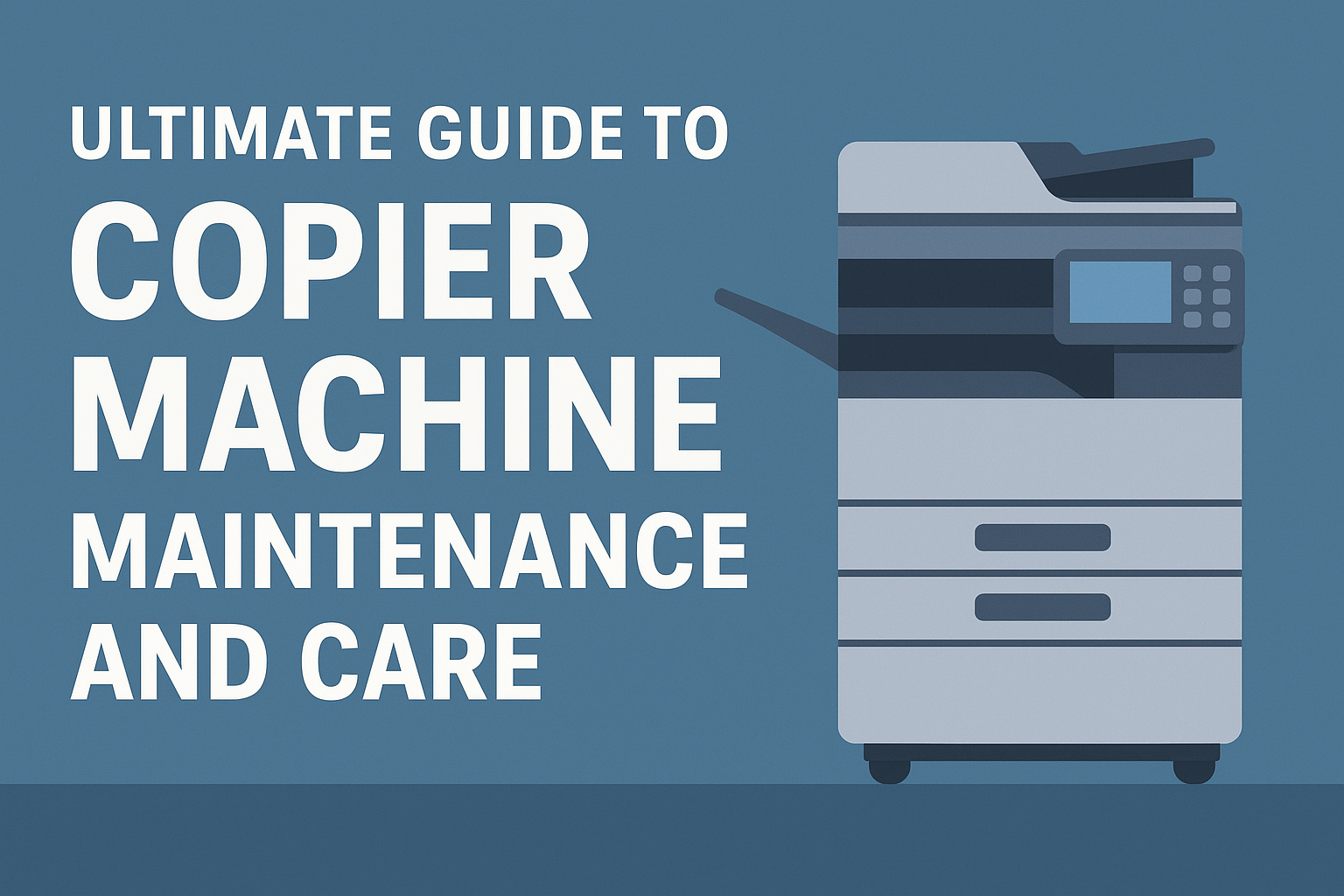The Critical Role of Document Archiving in Modern Business Operations
In today's fast-paced and data-driven landscape, effective document archiving is essential for ensuring business continuity, compliance, and operational efficiency. As organizations generate vast amounts of data, managing, securing, and retrieving this information can become increasingly complex. This article explores why document archiving matters for businesses, highlighting best practices, strategic advantages, and the technological tools that enable organizations to thrive amidst evolving regulatory and security challenges.
Understanding the Fundamentals of Document Archiving

What is document archiving and why is it important for businesses?
Document archiving involves the secure long-term storage of inactive but important documents, both physical and digital. Once documents are no longer actively used in daily operations, they are archived to preserve their integrity and accessibility for future reference. This process is critical in enabling organizations to comply with legal requirements, support audits, and protect against data loss.
Effective archiving ensures that vital records such as contracts, financial reports, and personnel files can be quickly retrieved when needed. For businesses, this quick access simplifies legal procedures and helps maintain transparency during regulatory inspections or investigations.
Additionally, archiving helps mitigate risks like cyber-attacks, natural disasters, or accidental data deletion. Digital archives, protected by encryption and access controls, offer secure storage solutions that can be accessed from anywhere, enhancing operational efficiency and business continuity.
By reducing reliance on physical document storage, businesses also free up valuable office space. Cost savings from digital archiving include less spending on paperwork, physical storage facilities, and maintenance. Proper archiving practices not only save costs but also reinforce data security, helping organizations stay compliant with data protection laws such as GDPR.
How does archiving differ from other data management processes?
While data management encompasses the everyday handling of active information, archiving specifically focuses on storing inactive data for long-term purposes. Active data is used regularly in workflows, whereas archived data has little or no daily use but remains essential for legal, historical, or strategic reasons.
Unlike simple data backup, which only creates copies for disaster recovery, archiving involves organizing data with metadata, applying retention policies, and ensuring it complies with legal standards. Backup copies are typically short-term, while archived data is preserved for extended periods.
Furthermore, archiving involves classification and tagging of documents to facilitate easy retrieval. Modern digital archives integrate with document management systems, enabling seamless access, searchability, and compliance reporting.
What types of documents need archiving?
Organizations must archive various types of documents, including:
| Document Type | Purpose of Archiving | Examples | Additional Details |
|---|---|---|---|
| Legal Documents | To support legal compliance and audits | Contracts, court filings | Often retain for many years depending on jurisdiction |
| Financial Records | To meet financial reporting and tax regulations | Invoices, tax returns | Usually retained for 5-7 years or more |
| HR Files | For employee and compliance purposes | Employee contracts, payroll reports | Needed for employment law compliance |
| Business Correspondence | For future reference and legal proof | Emails, memos | Archived based on company policies |
| Technical and R&D Data | To safeguard intellectual property | Patents, technical reports | Critical for innovation records |
Maintaining a proper archive of these documents ensures that they are protected from physical damage and easily retrievable in case of audits, legal inquiries, or strategic reviews.
Why is document archiving essential?
Proper archiving supports organizational efficiency by enabling quick access to important records. It helps companies meet legal and regulatory obligations, reduce storage costs, and secure sensitive information against unauthorized access. By implementing a structured archiving system, organizations can improve data security, ensure business continuity, and uphold compliance, ultimately strengthening their operational foundation.
The Strategic Importance of Document Preservation

Supporting legal compliance
Effective document archiving is vital for meeting legal and regulatory obligations. Many jurisdictions require organizations to retain specific documents, such as financial records, contracts, employment data, and tax submissions, for periods ranging from 2 to 30 years. Proper archiving ensures these documents are stored securely, organized systematically, and easily retrievable during audits, inspections, or legal claims.
Archived documents help companies demonstrate compliance with laws like GDPR, HIPAA, and the Companies Act. Automated classification and metadata tagging enhance searchability, reducing time spent during investigations or regulatory reviews.
Enabling enterprise audits and investigations
Archiving facilitates swift and accurate access during internal or external audits. Quick retrieval of expense reports, payroll data, or contractual agreements supports transparency and accountability.
Secure digital archives protect sensitive audit trails, keeping a record of all access and modifications, which is crucial for compliance and forensic analysis. Additionally, outsourced storage with specialized providers guarantees the integrity and security of sensitive information.
Preserving organizational culture and history
Beyond compliance, archiving plays a critical role in documenting a company's journey. It helps capture milestones, significant events, and stories that define organizational identity.
For companies with founders or long-standing leadership, recording their narratives helps preserve institutional memory and provides guidance for future generations. Celebrating anniversaries or establishing corporate narratives relies heavily on well-maintained archives.
| Benefits of Document Preservation | Focus Area | Description |
|---|---|---|
| Legal Compliance | Regulatory requirements | Meets laws on retention periods, facilitates audits |
| Operational Efficiency | Search & retrieval | Enables faster decision-making and reduces downtime |
| Security & Risk Management | Data protection | Safeguards against data loss, unauthorized access |
| Cultural Preservation | Organizational identity | Keeps historical records, preserves stories |
Choosing smart archiving strategies ensures that organizations not only comply with legal standards but also safeguard their legacy, improve operational efficiency, and support future growth.
Best Practices for Effective Document Archiving

Developing comprehensive archiving policies
A well-structured document archiving system begins with clear policies that define what documents should be archived, retention periods, and procedures for storage and disposal. These policies ensure compliance with legal requirements and help maintain consistency across the organization. For digital files, establishing standards for formats, metadata, and access controls is crucial. Physical archives should follow guidelines for secure storage environments, environmental controls, and inventory management.
Utilizing metadata and classification
Classifying documents with detailed metadata enhances searchability and retrieval efficiency. Assigning descriptive tags, categories, and indexes allows employees to locate needed documents swiftly, reducing downtime and improving productivity. Systematic categorization also supports regulatory compliance and audit processes by ensuring relevant information is easy to find when required.
Security measures and access controls
Protecting archived documents from unauthorized access and cyber threats is essential. Digital archives should employ encryption, user-specific access permissions, multi-factor authentication, and audit trails to monitor access and modifications. Physical documents must be stored securely using restricted access storage facilities, safes, or off-site facilities with permission controls. These measures enhance security, safeguard sensitive information, and support compliance with regulations like GDPR.
Regular audits and staff training
Periodic audits of the archiving system help verify that documents are retained, organized, and protected correctly. Regular reviews also ensure retention policies are followed, and outdated or irrelevant data is disposed of responsibly. Staff training on archiving procedures, security protocols, and compliance standards builds awareness and minimizes risks associated with mishandling records. Combining audits with ongoing staff education maintains the integrity and effectiveness of the archiving system.
Technological Innovations in Document Archiving

How does document archiving support legal and regulatory compliance?
Document archiving is essential for organizations to meet legal and regulatory standards. It ensures that necessary records, such as contracts, financial reports, and employee data, are retained for the required timeframes mandated by laws like GDPR, HIPAA, or the Companies Act.
A well-structured archiving system provides quick, secure access to documents needed during audits and legal proceedings. It leverages security features like encryption, access controls, and audit trails to protect sensitive information and demonstrate compliance.
Modern archiving tools also help automate compliance processes. For example, they can enforce retention schedules, automatically delete data after retention periods, and generate compliance reports.
By integrating these advanced systems, organizations can reduce the risk of fines, legal penalties, and reputational damage. They also facilitate transparent, verifiable records that support legal accountability and compliance assurance.
Digital transformation tools
The rise of digital transformation tools has revolutionized document archiving. Software like SaaS ECM solutions, such as NeoLedge’s Elise Cloud, provide real-time collaboration, cloud storage, and automated classification features. These tools make archival processes more efficient and reduce physical storage needs.
Cloud and hybrid storage solutions
Cloud storage enables organizations to store data securely off-site, offering scalability, cost savings, and remote access. Hybrid storage combines local and cloud archives, providing flexibility and control over sensitive data while enabling easy access.
Intelligent classification and retrieval systems
Artificial intelligence enhances document management by automatically classifying and indexing files based on content, context, or metadata. This smart categorization allows for rapid retrieval, saving time, and reducing errors.
Security enhancements like encryption and AI
Advanced encryption protocols safeguard digital archives from cyber threats. AI-powered threat detection systems continuously monitor for unusual activities and potential breaches, reinforcing data security. These technologies ensure that archived information remains confidential and intact.
In summary
Modern document archiving is no longer just about storage; it integrates digital tools, cloud computing, AI, and security innovations. These advancements streamline compliance, improve efficiency, and strengthen data protection, supporting organizations' digital transformation journey while safeguarding their valuable information.
Cost-Effective and Sustainable Document Management Solutions

How does document archiving help organizations save money and operate more efficiently?
Implementing effective document archiving systems offers significant financial and operational advantages for businesses. By shifting from traditional paper storage to digital repositories, organizations can drastically cut costs associated with maintaining physical files, which often require expensive physical space and resources. Digitization transforms paper documents into electronic formats stored securely in cloud or off-site digital archives, freeing up valuable office space that can be repurposed for more productive uses.
Automated archiving processes enhance efficiency by organizing documents systematically with metadata, making retrieval faster and easier. This rapid access reduces downtime for employees searching for critical information, thereby improving productivity and reducing delays in decision-making and customer service. For example, legal and compliance teams can retrieve necessary files quickly during audits or legal proceedings such as eDiscovery, cutting down on costly delays.
Digital archiving also aids in managing large data volumes, optimizing storage infrastructure, and lowering ongoing storage costs. Many organizations save substantial amounts by migrating email and other digital content into organized archives. Case studies indicate that companies using archiving tools in platforms like SharePoint have realized notable savings by reducing storage space and simplifying data management.
Furthermore, archiving ensures compliance with legal retention policies, preventing penalties from failing to keep required documents while also avoiding fines for non-compliance with regulations like GDPR and HIPAA. Clear records and audit trails maintained within archiving systems help monitor data and content for regulatory adherence.
In sum, by adopting digital archiving solutions, organizations can achieve increased security, control document access, and preserve valuable business information—all of which contribute to lowering costs and boosting operational efficiency.
More about cost savings through digital archiving
Searching for ways to maximize savings from digital archiving? Using advanced compression algorithms and automated content management tools can further reduce storage expenses and improve data handling. These strategies streamline the archiving process, minimize data duplication, and optimize storage space, offering long-term financial benefits while supporting sustainable practices.
| Cost Savings Strategies | Benefits | Additional Details |
|---|---|---|
| Digitization | Reduces physical storage needs | Converts paper documents into searchable digital files |
| Automated classification | Saves time and manpower | Uses AI to organize documents with tags and metadata |
| Compression & deduplication | Lowers storage footprint | Eliminates redundant data, conserves space |
| Cloud and off-site storage | Decreases infrastructure costs | Enhances scalability and disaster recovery |
By integrating these techniques, businesses not only cut costs but also contribute to environmental sustainability by reducing reliance on physical materials and energy-consuming storage facilities.
Document Management Systems and Their Role in Business Continuity
What features do modern archiving solutions offer?
Modern archiving solutions are equipped with advanced features that ensure secure, efficient, and accessible document storage. These include comprehensive classification and metadata tagging, which enhance searchability and quick retrieval of information. Encryption protocols safeguard data during storage and transmission, protecting against cyber threats. Automated backup systems and version control maintain data integrity and enable recovery in case of corruption or loss.
Cloud integration is a prominent feature, allowing organizations to access their archives from anywhere, promoting remote work and global collaboration. Furthermore, these systems support compliance with legal standards through retention management and audit trail functionalities, making regulatory adherence straightforward.
How do archiving systems integrate with existing IT infrastructure?
Effective archiving solutions seamlessly connect with an organization's current IT environment. They can integrate with document management software, enterprise resource planning (ERP) systems, and customer relationship management (CRM) platforms. This interoperability streamlines workflows by enabling automatic archiving of relevant data and documents without manual intervention.
API compatibility and open standards are crucial, allowing data exchange between systems and enhancing overall operational efficiency. Such integration reduces duplicate efforts, minimizes data silos, and ensures consistency across all business functions.
How is automation and AI used in archiving?
Automation simplifies the process of managing vast amounts of data. AI-driven tools can automatically classify documents based on content, assign metadata, and determine appropriate retention periods. Machine learning algorithms continuously improve classification accuracy and relevance, making organizing large archives manageable.
AI can also facilitate intelligent search functions, enabling users to find documents through natural language queries. Automated alerts for approaching retention deadlines or security breaches further enhance the system's responsiveness and compliance.
How do archiving solutions ensure data integrity and redundancy?
Maintaining data integrity involves regular checks using error-detection algorithms to verify that stored data remains unaltered and accurate over time. Redundancy is achieved through multiple data copies stored across diverse locations, both on-site and in the cloud. This duplication minimizes the risk of total data loss in case of hardware failure, natural disasters, or cyberattacks.
Backup strategies include incremental and full backups, with secure encryption to protect confidentiality. Recovery plans are tested regularly to ensure swift restoration of data, supporting continuous business operations even during disruptions.
Why is proper document archiving essential for business continuity and risk mitigation?
Proper document archiving provides numerous strategic benefits that safeguard business operations. It ensures that critical records—such as legal documents, contracts, financial reports, and customer data—are preserved securely and remain accessible.
This readiness enables quick decision-making during crises, supports legal compliance, and reduces the chances of regulatory fines or penalties. Automated backups and redundancy facilitate disaster recovery, ensuring data availability when needed.
Organized archiving also diminishes security vulnerabilities, as access controls and encryption protect sensitive information from unauthorized access or cyberattacks. Consequently, investing in a robust document management system enhances overall resilience, promotes operational efficiency, and helps organizations respond effectively to emergencies, thereby ensuring continuity in business activities.
Securing the Future with Strategic Document Management
As organizations navigate the complexities of modern data management, the importance of robust document archiving cannot be overstated. From ensuring legal compliance, safeguarding vital information, and reducing costs to supporting efficient operations and strategic decision-making, effective archiving systems are foundational for sustainable growth. Embracing technological advancements, adopting best practices, and partnering with experienced providers empower businesses to transform their document management landscape. Ultimately, a well-executed archiving strategy not only mitigates risks but also provides a competitive edge, ensuring that invaluable organizational knowledge is preserved, protected, and readily available in an ever-evolving digital world.
References
- Find Out Why Document Archiving Is So Important
- Why is Archiving Important for Your Business? - 5 Reasons
- 8 reasons why document management is a must for business owners
- What is Archiving and Why is it Important? - Secure Data Management
- What is Document Archiving? Ultimate Guide to ... - FileCenter
- The Benefits of Document Archiving and Retrieval - Teamhub.com
- How Digital Archiving Can Transform Your Business for the Better
- 7 Reasons You Should Archive Your Company's Data Now
- The importance of good archiving of documents in business
- 12 Things to Know About Document Archiving - Learn - Ademero





.jpg)

























